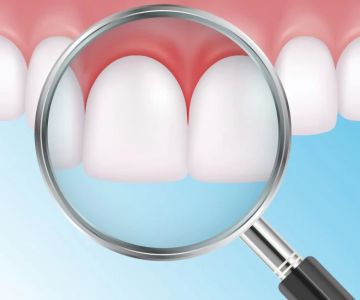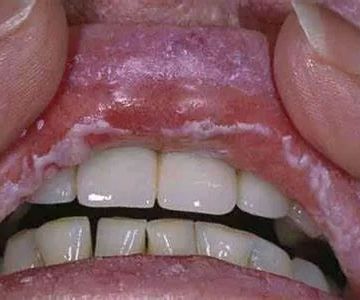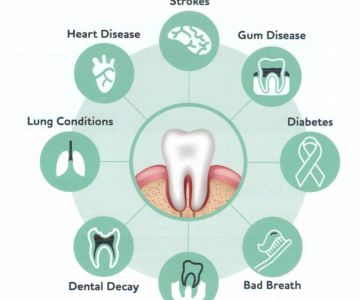The Link Between Oral Health and Heart Disease
Many people do not realize that their oral health plays a significant role in their overall well-being, particularly heart health. Research over the years has established a connection between poor oral hygiene and an increased risk of heart disease. This link centers largely on the role of gum disease and oral bacteria influencing cardiovascular health.
Oral diseases, especially periodontitis or advanced gum disease, can lead to chronic inflammation. This inflammation may not be limited to the mouth but can affect blood vessels and the heart itself. When bacteria from infected gums enter the bloodstream, they can cause or worsen arterial inflammation, contributing to the formation of plaques that narrow arteries, a process called atherosclerosis.
How Gum Disease Contributes to Cardiovascular Problems
Gum disease begins when plaque—a sticky film of bacteria—builds up along the gum line. If untreated, this can progress to periodontitis, causing gums to recede and pockets to form where bacteria thrive. The bacteria and inflammation can spread systemically, increasing the risk of blood clots and damaging the lining of arteries.
Studies show that individuals with periodontitis have a higher chance of developing heart attacks, strokes, and other cardiovascular diseases. The inflammatory markers in the bloodstream linked to gum disease overlap with those found in patients suffering from heart conditions.
Scientific Evidence Linking Oral Bacteria to Heart Disease
One striking study demonstrated that the same bacteria responsible for gum infections were found in arterial plaques taken from patients with heart disease. This suggests a direct role for oral pathogens in contributing to artery damage. Additionally, the immune system’s response to oral infections can trigger systemic inflammation, exacerbating heart disease risks.
This connection underscores the importance of controlling oral infections not only to preserve teeth but to protect the heart and vascular system as well.
Real-Life Stories Demonstrating the Impact of Oral Health on Heart Disease
Take the case of Robert, a 58-year-old man who experienced recurrent heart issues. After multiple hospital visits, his cardiologist noticed severe gum disease during a routine checkup. Once Robert addressed his oral health with professional dental care and better hygiene habits, his cardiovascular inflammation markers improved significantly.
Stories like Robert’s highlight how comprehensive health care must include oral health as a key factor in preventing and managing heart disease.
Practical Steps to Improve Oral and Heart Health
Maintaining good oral hygiene is one of the simplest and most effective ways to reduce cardiovascular risk. Brushing twice daily with fluoride toothpaste, flossing regularly, and scheduling routine dental cleanings help control plaque and gum inflammation.
Moreover, lifestyle factors such as quitting smoking, eating a balanced diet, and managing diabetes contribute to both oral and heart health. Your dentist and healthcare provider can work together to create a plan that addresses your unique risks.
The Role of Regular Dental Visits in Cardiovascular Health
Regular dental checkups allow early detection and treatment of gum disease, reducing the chance of systemic complications. Dentists can identify oral signs that might indicate underlying heart issues, enabling timely interventions.
Professional cleanings remove hardened plaque (tartar) that you cannot eliminate with regular brushing, thereby minimizing bacterial invasion and inflammation. This preventive care plays an essential role in reducing the burden on your heart.
Future Research and Emerging Treatments
Researchers continue to explore how improving oral health can positively impact heart disease outcomes. Innovations such as targeted antimicrobial therapies and vaccines against specific oral bacteria are under investigation. These advances promise to deepen our understanding and improve integrated care strategies.
Staying informed about these developments empowers patients to take proactive steps toward healthier mouths and hearts.
Taking Action: Protect Your Oral and Heart Health Today
Recognizing the connection between your oral health and heart disease can transform how you approach daily hygiene and medical care. By prioritizing oral cleanliness and seeking professional dental support, you lower the risks of serious cardiovascular complications.
For tailored oral health services and expert guidance, consider visiting Dentistry Toothtruth. Their team specializes in comprehensive care that promotes both oral and systemic well-being, helping you safeguard your smile and your heart.







 Westgate Dental Arts3.0 (2 review)
Westgate Dental Arts3.0 (2 review) Coventry Family Dental4.0 (247 review)
Coventry Family Dental4.0 (247 review) Familia Dental3.0 (1028 review)
Familia Dental3.0 (1028 review) Dr. Daniel S. Fife, DDS4.0 (31 review)
Dr. Daniel S. Fife, DDS4.0 (31 review) Dentistry At Suburban Square: Michael I. Wollock, DMD4.0 (1228 review)
Dentistry At Suburban Square: Michael I. Wollock, DMD4.0 (1228 review) Comfort Care Dental4.0 (1156 review)
Comfort Care Dental4.0 (1156 review) The Importance of Oral Health Education During Pregnancy for a Healthy Pregnancy
The Importance of Oral Health Education During Pregnancy for a Healthy Pregnancy Why Skipping Dental Checkups Can Lead to Bigger Oral Health Problems
Why Skipping Dental Checkups Can Lead to Bigger Oral Health Problems Best Tips for Brushing Your Teeth Properly for Healthy Gums: Essential Techniques for Oral Health
Best Tips for Brushing Your Teeth Properly for Healthy Gums: Essential Techniques for Oral Health Advantages of Porcelain Dental Restorations
Advantages of Porcelain Dental Restorations How Can Diabetes Cause Tooth and Gum Problems? Preventing and Managing Oral Health Issues
How Can Diabetes Cause Tooth and Gum Problems? Preventing and Managing Oral Health Issues Healthy Habits for Promoting Good Oral Health and Hygiene: Tips for a Healthy Smile
Healthy Habits for Promoting Good Oral Health and Hygiene: Tips for a Healthy Smile